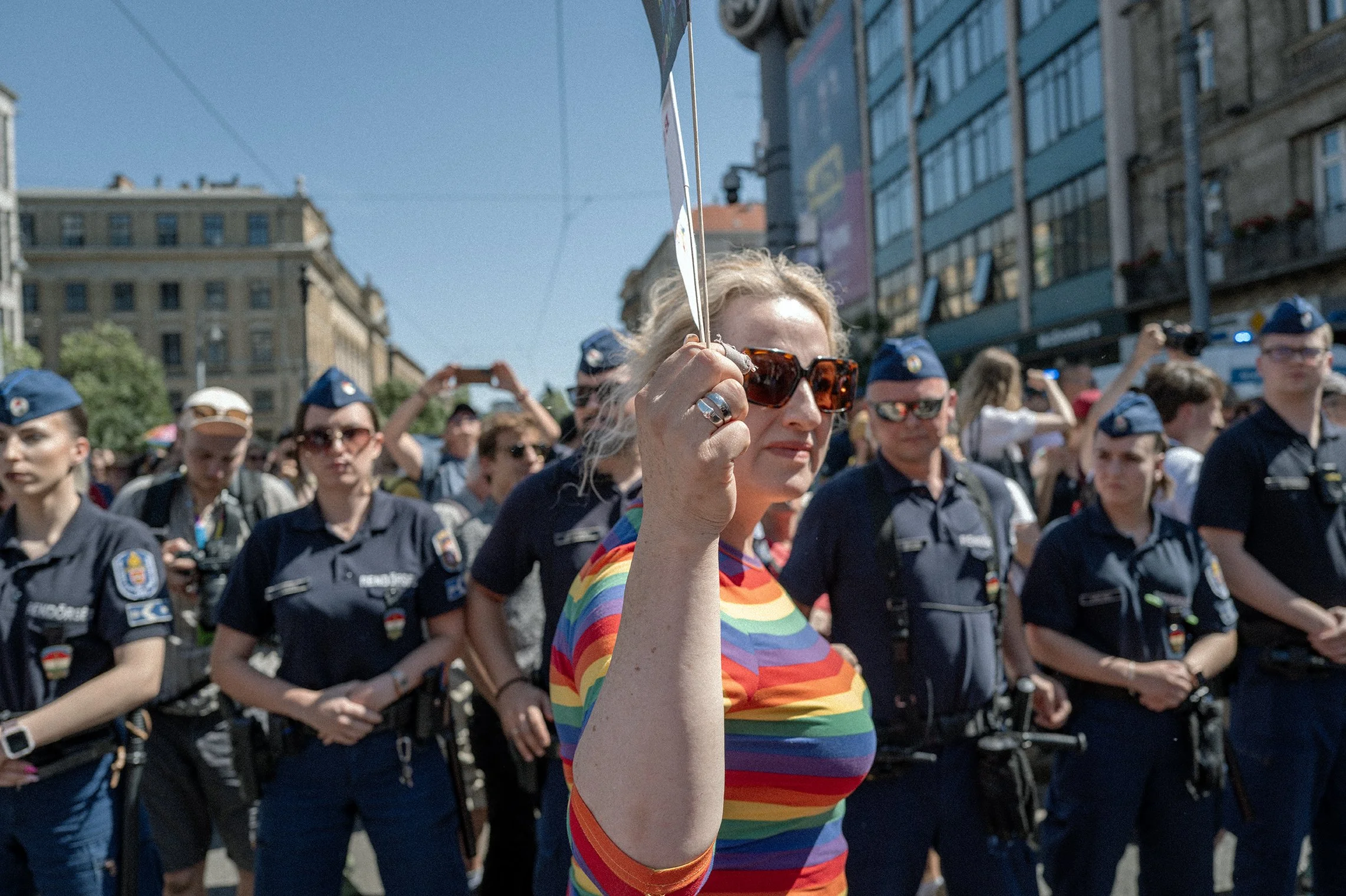WHEN DEEP LOVE TAKES ACTION Why Budapest Pride made me bite my lips
It’s 28 degrees Celsius outside. Inside my body, it’s 38 something. I wash down two paracetamol and get ready, camera in one hand, water bottle in the other. The time is just before 1:30 PM. In half an hour, Budapest Pride is set to begin.
The stage is set. The world’s press is in place. They move like a shoal of fish through the crowd, attacking the same prey: mostly men who stand out, either through their clothing or with political signs. To my surprise, I see hardly any police. Where is everyone? One of the Hungarian women I’ve been in touch with tells me she has seen the police installing cameras in various places around the city with "facial recognition technology".
Four Nazi demonstrations have been announced. I can’t get over the absurdity of Nazis being allowed to speak in the public space, while a Pride parade is forbidden. On the streets, I have seen several golden plaques bearing witness to the “Border of the Pest Ghetto 1944”. Just a few meters from my studio history was carved into the pavement: ”Here lived Ilona Harmat, born 1921. To escape Nazi persecution and impending deportation to the death camps, she took her own life on April 19, 1944.” The date places her death directly after the Nazi occupation of Hungary and immediately before the mass deportations to Auschwitz began. Those who were there fighting against the fascists must be pinching themselves today.
Now, here we stand again. Defending a group's right to exist. This time on the agenda: a diversity of love.
Deep inside a circle of photographers and journalists, two men who call themselves Christian Preachers are moving about. One is carrying a large cross and is dressed in a black T-shirt with white text on one arm: “Turn from sin.” They are speaking English, warning of the sin to be committed today. “We are here to warn you about your wicked way. We are here to warn you about your sin. Most people here are not using a sound mind. You are confused.” They are asked by the organisers to leave the area, but the men refuse, loudly citing their right to be there. Their words chafe. According to Orbán and the Hungarian statute book, it is we who have no right to be here.
By chance, I see a man holding up a homemade sign attached to a long stick framed with a rainbow flag at the top. It says: “I'm here for Gáspár.” I never had a chance to speak to the man, but a woman tells me there’s a rumour that Orbán’s only son, Gáspár, is gay. The plot thickens.
Shortly after 2 PM, the mass begins to move. At the very front, a white flatbed truck carries a DJ. From the speakers, Aretha Franklin sings of a "deeper love".
”People, let me tell you
I work hard every day
I get up out of bed
I put on my clothes
'Cause I've got bills to pay
Now it ain't easy
But I don't need no help
I've got a strong will to survive
I've got a deeper love
Deeper love
A deeper love inside
And I call it pride”
As I am walking at the head of the march I notice that I’m nervous. I have absolutely no idea what awaits. All I know is how incredibly wrong things could go if I were arrested or taken away, given that I am ill and have a fever. What if the police take me and I lose my phone (my everything) and my camera (my other everything). For the first time, I am risking something. Exactly what is unclear. Orbán has threatened participants with fines up to 500 Euros and the organisers with prison sentences up to a year. For the Hungarians, it's a lot of money, considering the median wage is just 960 Euros per month.
Greta Thunberg has checked in and is making an appearance on her Instagram account. She explains things factually, backing up every sentence with reasons for her being here. It strikes me that she is like a precocious schoolmistress who has transformed into a professional activist. I see no fear in her face.I see the same absence of fear in the social media posts from politicians of the European Parliament.
I am glad they are here. Just as I am glad the shoal of press is here. But something is grating on me. I react to their lack of fear or worry. Is this just another day at the office for them? For me the battle was personal and emotional. I don’t have millions of followers on Instagram. I don’t have a media house or a political party behind me. I am just a lesbian from Sweden, here to walk in what I suspect is the most important Pride march of my life. This is the closest I can get to Stonewall in 1969.
After half an hour, the procession suddenly stops. Further ahead, I see a wall of police. The plan is for the march to continue straight ahead, but one of the Nazi counter-demonstrations is being held on that street, so the police decide to re-route the Pride parade. I see a woman dressed in the colours of the rainbow walking back and forth in front of the police wall. In her hand, she holds a miniature Pride flag. The photographers pounce at once. Again they move like a shoal of fish, capturing the symbolic image: the lone rainbow woman against the establishment. I manage to ask the police why we are at a standstill. They won’t answer. They barely make eye contact. I think it is somewhere around there that I bite my lip for the first time.
Here we are, in the scorching sun, 28 degrees on a Saturday, defying the people in power. We are defying conservatism and the “sacred” core values that the patriarchy has promoted for thousands of years. Those walking beside me seem to be perfectly ordinary Hungarians. I think about what they are risking. Heavy fines that would certainly be felt. “Let it cost what it may,” as one of them put it. Unlike the professional politicians, everyone I speak to before the march feels a sense of unease, a fear, something restlessly indefinable but also excitement about taking action.
No one knows what will happen. Many say the same thing: that they have never taken part in a Pride march before. This year, they are seizing the chance to express their protest against Orbán. Never have so many heterosexual people supported a Pride march. At least, not one that I have been in.
Icona Pop fills the streets, roaring through the speakers:
”You're on a different road, I'm in the Milky Way
You want me down on earth, but I am up in space
You're so damn hard to please, we gotta kill this switch
You're from the '70s, but I'm a '90s bitch
I don't care, I love it”
We are walking with fear on our shoulders. It is the only way to conquer it. To walk despite it being there. To walk for one’s convictions. It is the only way to set one’s love and one’s humanity in motion. Looking around, I also see joy. Smiles. Dancing bodies. Having been on Pride Parades in Copenhagen, Stockholm, London, and Berlin, I do notice that this one is calmer. Less promiscuous. It's like a grown-up arriving at a party she has not been to since she was 15. My throat tightens. I bite my lip.
A few days earlier, on the 24th of June to be exact:
The sun had just set as the train rolled into Budapest Keleti station. I had spent 38 hours on various trains from the start in Copenhagen, via Berlin and an involuntary overnight stay at a hotel in Dresden. A storm in Berlin had caused trees to fall onto the tracks. We were stuck in no-man’s-land for several hours. The entire train journey felt like a journey without end. When I finally arrived, just before 9 PM on a Tuesday evening, I felt like Rocky Balboa after going four rounds with the Russian. Sore and elated, I took the metro one stop, and 20 minutes later I was checking into my studio.
I had rented a room with a kitchenette on the Pest side. The only thing I knew about Budapest was that Ingrid Bergman’s lover, Robert Capa, was born here. I had always been impressed by his pictures. Especially the one the world never got to see: Ingrid Bergman sitting in a bathtub in a bombed-out Berlin. The picture was supposedly destroyed in the developing bath. The photograph was like a whisper of her impending entry into Italian neorealism. Capa was a war photographer. I had come to Budapest because Orbán and his friends had started a war against the LGBTQ+ family. That is where the similarities between Capa and me end. Apart from our shared love for Ingrid Bergman.
The following day, I did what I always do to get to know a city. I take long walks. It felt like a sauna outside. The asphalt felt soft, and I imagined my footprints could forever be observed like Neil Armstrong’s on the moon. The buildings were stunningly beautiful. Not perfectly maintained like in Paris, where every building looks like a gorgeous cream cake.
Here, I find them raw and authentic, as if the buildings still carried a very old soul. I stopped by one that had bullet holes in its façade. I had seen similar buildings in the former East Berlin. The holes were war damage. I was given the same explanation here. I stood for a long time, just contemplating the building shells. As my eyes got to know the details, it was as if I moved in. Perhaps I had lived here in a past life. It all felt so familiar.
I saw women my own age dressed in floral cotton clothes with an antiquated pattern. There were a lot of floral fabrics. Many shops still sold fabric by the metre. That must mean it was still good business to sew your own clothes. Apart from a punk dressed in black, no one really stood out with their clothes or hairstyle. It was surprisingly homogenous. For a capital city, everything felt very gentle.
My friends from Sweden had recommended I visit a bathhouse. "Go to the baths and get a massage," I was told. To my surprise, the only thing I saw of that nature was Thai massage, especially in the slightly more upmarket tourist areas. The observation made a note in my book.
In a country with a government that so fiercely promotes tradition and has an iron curtain around its border, I would have thought the authentic bath culture would be a celebrated part of Hungary’s core identity. I had no idea what truly went on inside these ubiquitous Thai massage parlors, but I couldn't help but wonder if there was a link between the influx of tourist cash and a certain kind of reputation. The cracks start to unfold.
Walking the streets of Budapest was wonderful. Chatting with Hungarians felt gentle, curious, and friendly. I don’t know what I had expected in Orbán’s country, but it wasn’t kindness. A woman asked where I was from. Sweden, I said, and told her I was here solely for Budapest Pride. Kindly and politely, she steered the conversation to the weather.
I am here for personal reasons. I have followed from a distance as politicians in Hungary have shrunk the space and the rights for the LGBTQ+ family. Now it is our turn, but it could just as easily have been someone else. I know all about dictatorships. I grew up in one. My father was very authoritarian.
I realised early on the consequences of showing my feelings or expressing my opinions. The punishment was so harsh that I decided to close off my heart and build a great wall for protection. I was no more than eight years old. I decided that no one would get to my sacred flame of life. It was a necessary decision that would cost me dearly, but I kept the promise to myself. I kept my soul intact. Now I am living in the time of the thaw.
As I strolled around Budapest, it took a while before I understood what was missing. I don’t know how I figured it out, but in a flash, I realised what was absent: The Rainbow Flag. The LGBTQ+ flag. Gone. Non-existent. It was only when it wasn't there that I understood its absolute value. This is what it must have been like in Sweden when I was growing up, I thought. We may be a minority, but our PR value in the West should not be underestimated. We play a major role on the global political stage. The Rainbow Flag is no longer just about the right of LGBTQ+ people to express their versions of humanity. The flag is now about the right of all people to live in freedom and express who they are.
Right now, we have the leading role in one of the world’s great dramas. The LGBTQ+ family seems to symbolise a limit to what humanity can tolerate. I belong to the naive tribe that, for some strange reason, believed that Europe was one big family. That is not the case. Especially not when it comes to LGBTQ+ rights. We are divided into two camps. One in the East and one in the West. On the battlefields of Ukraine, everything is brought to a head and can be described as a crossroads. One road leads to Russia, defined by homophobia; the other to Western Europe, guarded by human rights.
On the 26th of June at eight in the morning, I am having breakfast with a dancer who has lived in Budapest for a number of years. Over bites of a croissant washed down with cappuccino, in a temperature that will soon reach a scorching 35 degrees, she offers an interesting analysis of why power is threatened by people’s sexuality:
"I came across some French philosophers who understood that sexuality is connected to expression and self-knowing. These ideas are going against the fascist way. If you are a person who is okay with whatever you feel and whatever you wish for, and you are conscious about your desires... then you say, 'I am not going to go against myself. I am here with whatever I am.' This is a threat to the system in Hungary. Politically, the system is dependent on individuals' self-oppression. That they question themselves all the time, feeling small and feeling like you don't have a choice or a voice. You are just somebody who is suffering. You're a victim. So us doing the walk on Saturday is a big thing. We are finally waking up."
What she is describing is how a power structure places bombs inside people, turning them into their own worst enemy. No one can sue the state for something its inhabitants do to themselves. I recognise the phenomenon from my own upbringing. That is also why I know that the process can be broken.
During my days in Budapest, I was told several times that Hungarians are not used to protesting. It’s not in their nature, they explain. I almost get a picture of an insecure child playing in a sandpit, while the big children sit at the grown-ups’ table, drawing up the country’s plans. Perhaps that is why what moved me the most in the Pride march was not the politicians. It was not the media’s at times hysterical hunt for the individuals who stood out most in the crowd.
For me, it was the man dressed in Lidl clothes, protesting the political system. It was the elderly couple who held each other’s hands and walked for everyone’s freedom. It was the heterosexual woman who said she was walking in her first Pride to protest against Orbán. It was the man who held up a handwritten sign saying he was walking for the right of all to assemble. He walked for Pride. It was the dancer who walked even though she was afraid. “I’ll take the fine. It’s worth it.” It was their steps that made me bite my lip, several times over.
After a two-hour something march, we reached Elisabeth Bridge. As we crossed the narrowest part of the Danube, the music suddenly fell silent. I don’t know why. It was replaced by occasional bursts of applause. I managed to make my way to the front of the procession. The media was still like a shoal of fish. They had positioned themselves perhaps 5 metres in front of the large banner. I identified one of the men in the middle.
The mayor of Budapest, Gergely Karácsony. A father of two, married to a woman. He has actively supported Budapest Pride and tried to find loopholes in the statute book to make the parade legal. When that option wasn't there, only civil disobedience remained. I do not wish to diminish the importance of the politicians in any way, but this day is not about them. This day, the heroes are the ones who are truly risking something. The politicians, as I see it, are just adding another medal to their CV. If the mayor is risking anything in his own country, I am sure he already has an office waiting for him in Brussels.
In the chaos at the very front, I see the man with rainbow feathers on his back. He dances through the crowd like a parrot. Earlier, he had posed for me with his rainbow-coloured fans, which read "basic bitch". He is wonderful in his stereotypical look. Unmistakable. I search frantically for the lesbians. Where are they? It is hard to know who is who in a march where the majority consists of heterosexual supporters and men. I think that lesbian women should be leading the parade. We break the patriarchal power structure outright. But we get no visibility. That is why I went to Budapest. I wanted to show that I, as a lesbian, support the freedom of expression for lesbians in the European family. My Hungarian contacts confirm the same picture. The question "where are the lesbians" never seems to go away.
A few days later In the queue for the flight to Copenhagen, I start talking to a woman from Budapest who knows Swedish culture well. Still high on the Pride experience, I asked her what she knew about the rumour concerning Orbán’s only son. I don’t remember what she answered. I only remember that this was the first time I had met a person who didn’t think Orbán did everything wrong.
“I feel much safer in Budapest than I do in Malmö,” she said, referring to Sweden’s refugee policy.
She had been married to a gay man and knew people in both camps. She doesn’t think it’s right to ban Pride, but at the same time, she echoed the pro-government propaganda: that homosexuals live out their sexuality in a shameless manner, that it is inappropriate for children to see. When I asked if she herself had witnessed this, she answered no. This was something she had read about.
Her perspective highlighted the theory that Orbán’s "endgame" is to create a scapegoat to shift focus from the country’s real problems: an education and healthcare system in freefall, high housing costs, and poor wages. Her arguments also made me realise that I should have had more conversations with people from Orbán’s side. The story was perhaps more complex than I had first been willing to admit.
I left the parade shortly after the bridge. The paracetamol was no longer working. My strength was gone. I began the long journey upstream and returned to my sickbed. On the way back, I came to the parade’s starting point. There were still people walking there. Different figures have circulated in the media about the number of participants. Normally, 35,000 turn up. Today, there were more than 200,000 of us. Never have so many people taken part in a Pride parade in Budapest. The day after the parade, I ask the dancer how her Pride was.
”I’m shocked that this many people can gather. It means that probably this many people is okay with others being homosexual. If that’s true then it totally changes the narrative of the government. It means that actually Hungary or at least Budapest is not homophobic.”
I am still unsure of where Orbán wants to go with his politics. Should I see it as him wanting to eradicate homosexuals from the public narrative? That we represent something dirty, un-Hungarian? We are allowed to exist, but not to be seen or heard. For me, this view is reason enough to come back and walk in next year’s Pride march.
I am not going to pretend that I understand Hungarian politics or that I comprehend men like Orbán. The only thing I know is that human diversity is greater than we have the imagination to conceive. The creative capacity of humankind will never accept being put in a cage. What we call love can never be defined by anyone other than the one who carries the seed of love. Life and humanity are an act of creation. Power has never succeeded in subjugating life. They will not succeed in the future either.
A week or so after the march, Orbán announced that he would not be issuing any fines or prison sentences. When deep love takes action, it is stronger than power. What happened in Budapest can happen anywhere. Back in my studio, I crashed on the bed. I was drained. Hot with fever, I managed to eat some watermelon to cool down. Moved by the indomitable nature of life, the tears finally started to fall like a gentle summer rain along my cheeks. Far away, between the buildings and the asphalt, (or was it just playing loud in my head) Aretha Franklin’s Deep Love echoes. I no longer had to bite my lips.
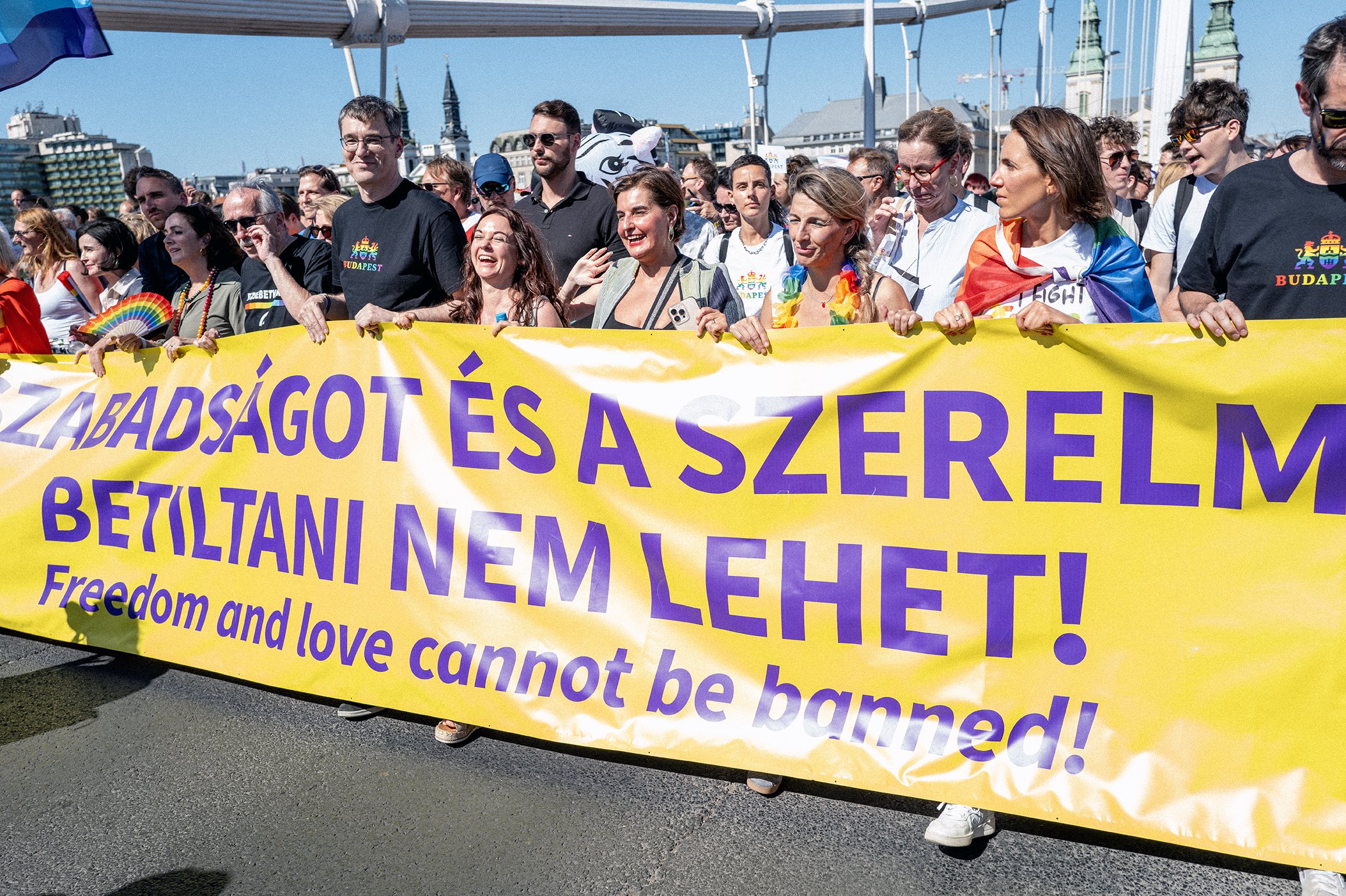


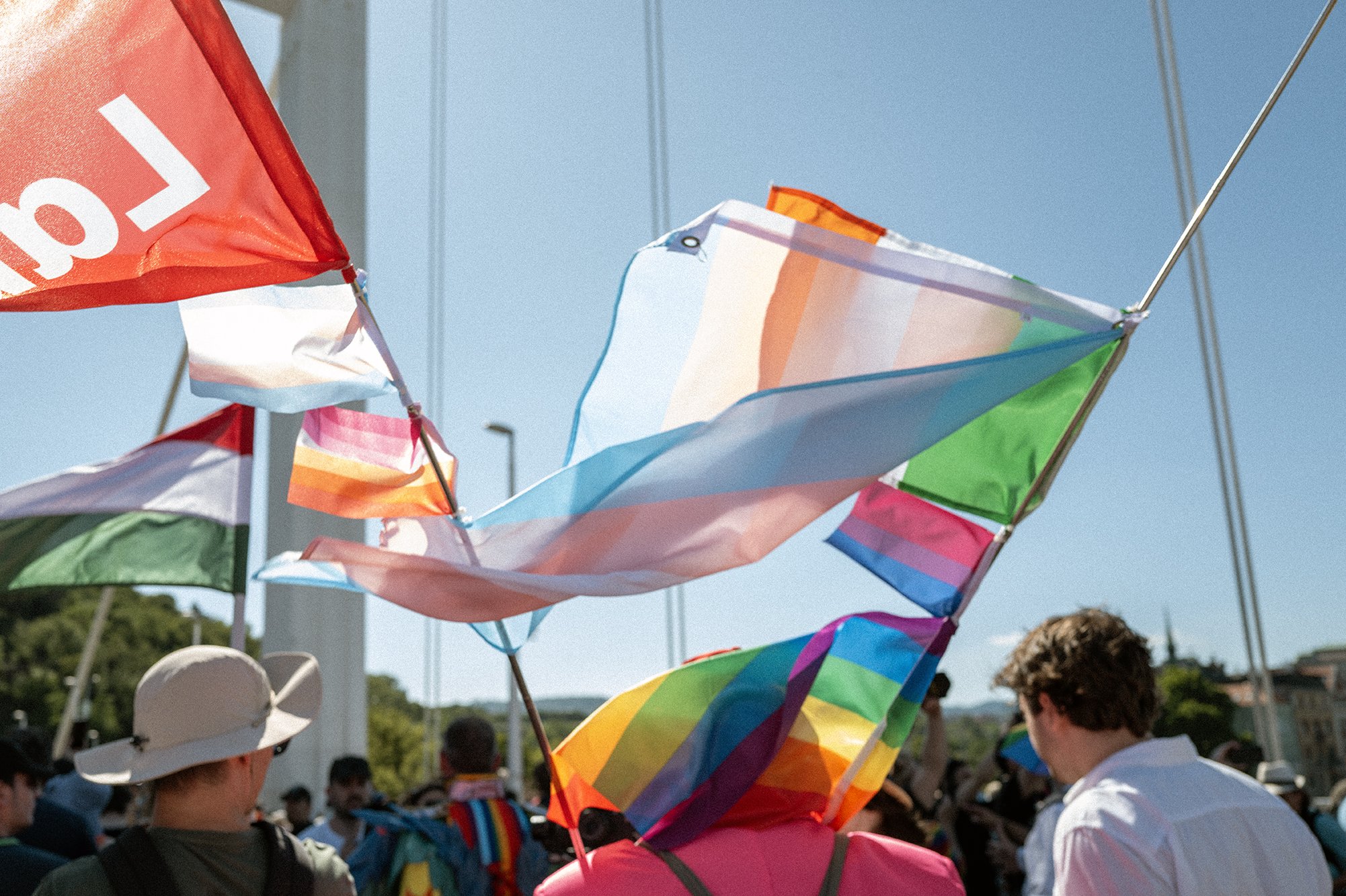

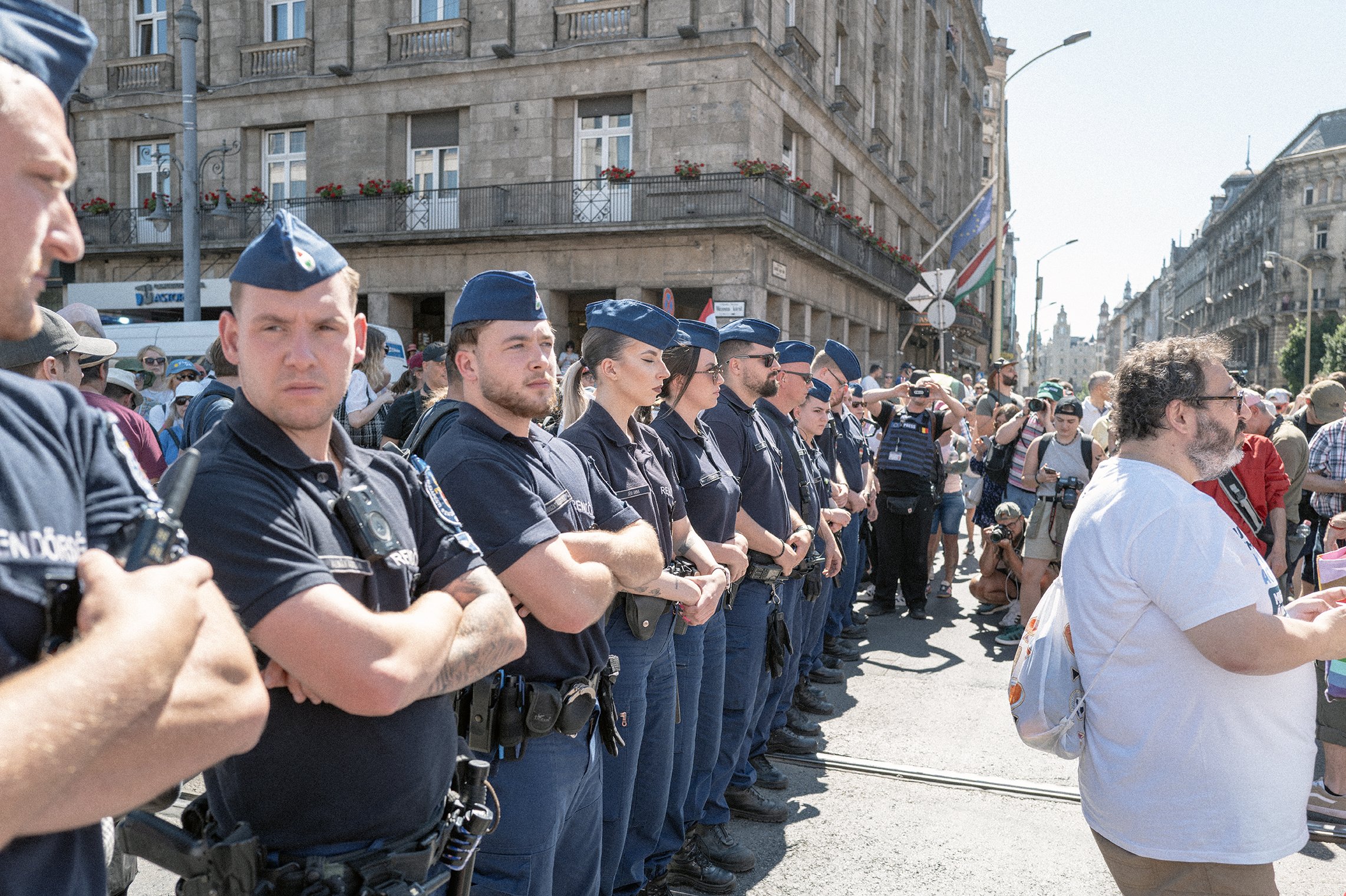


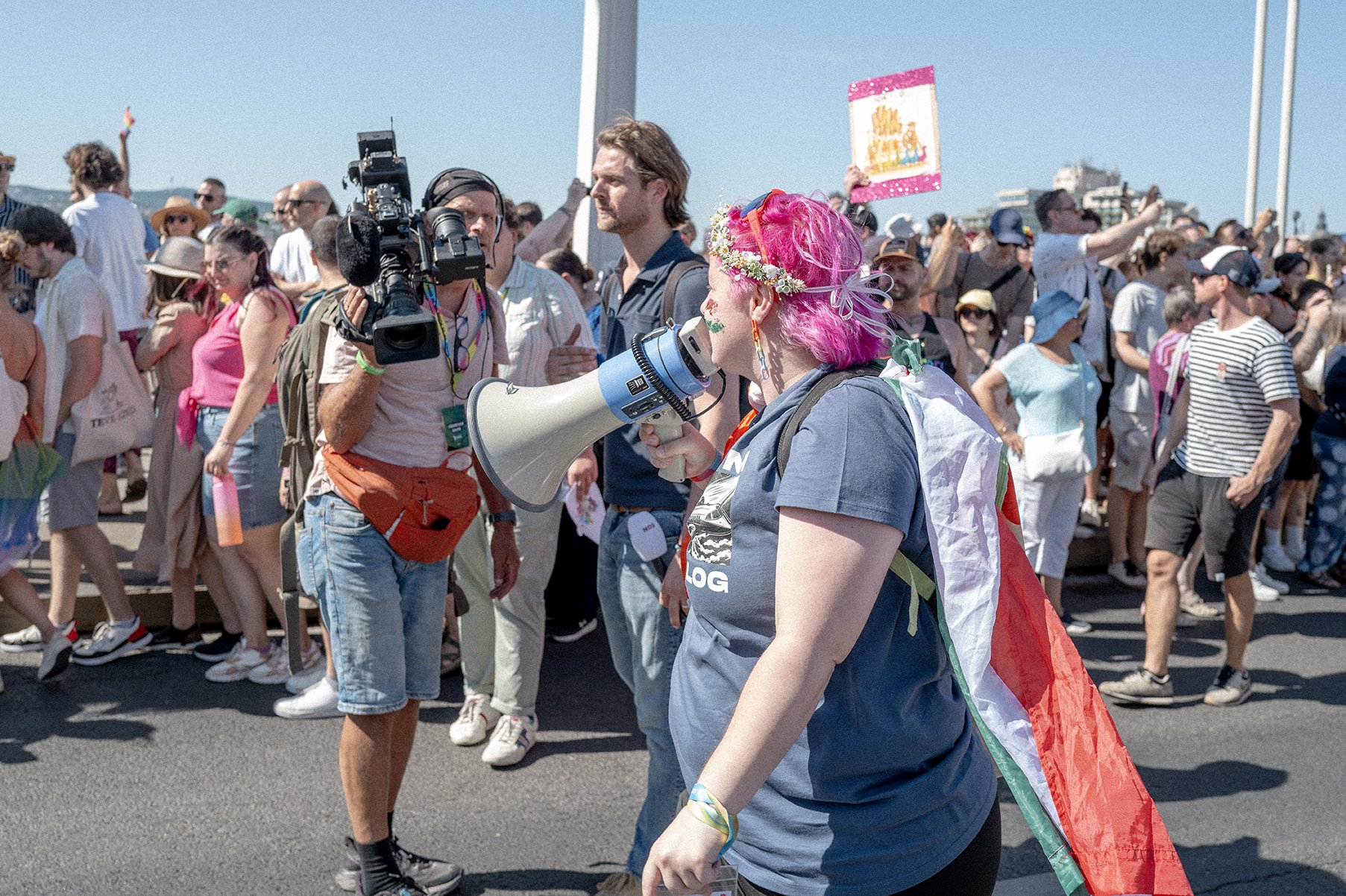

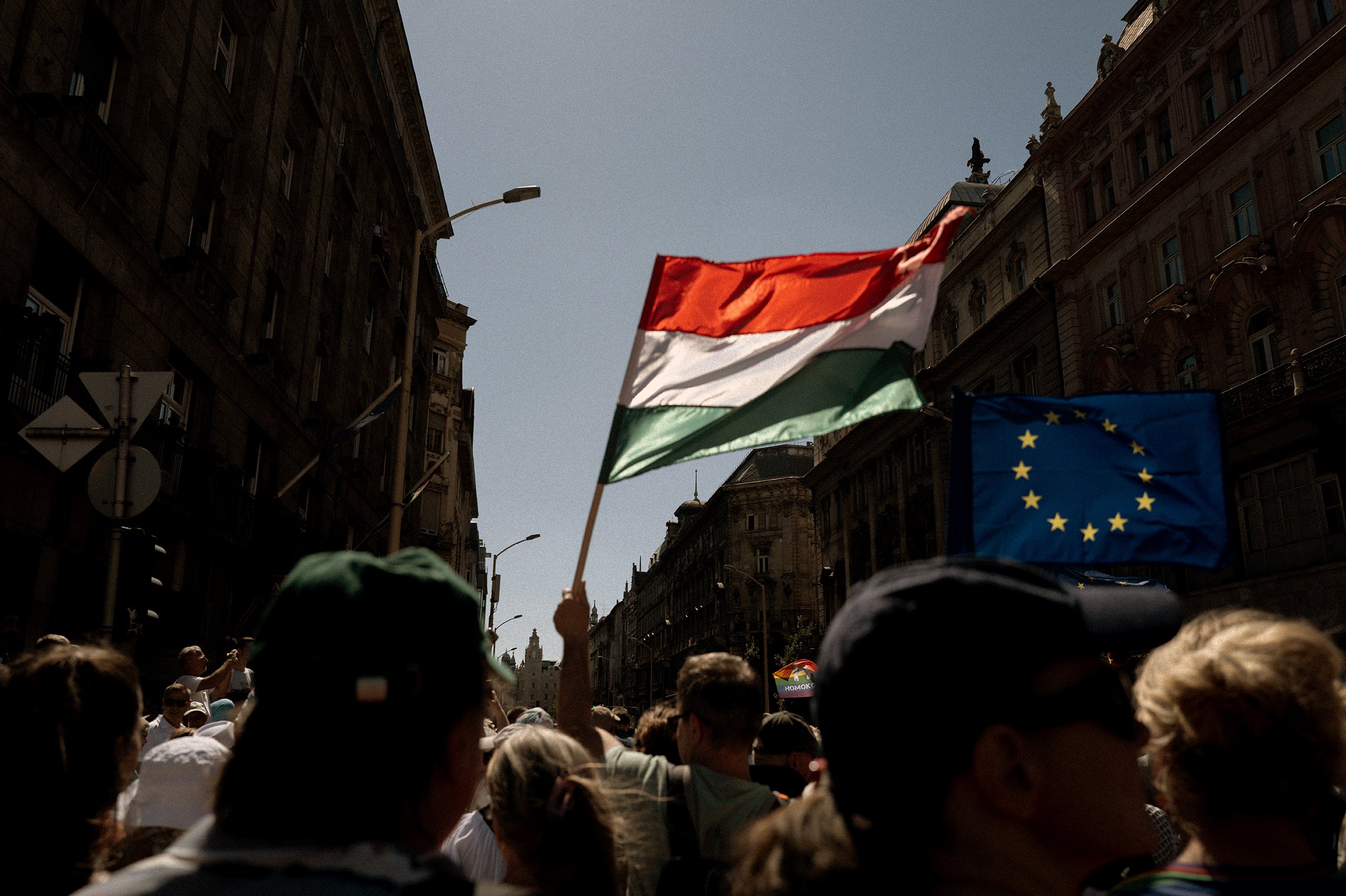
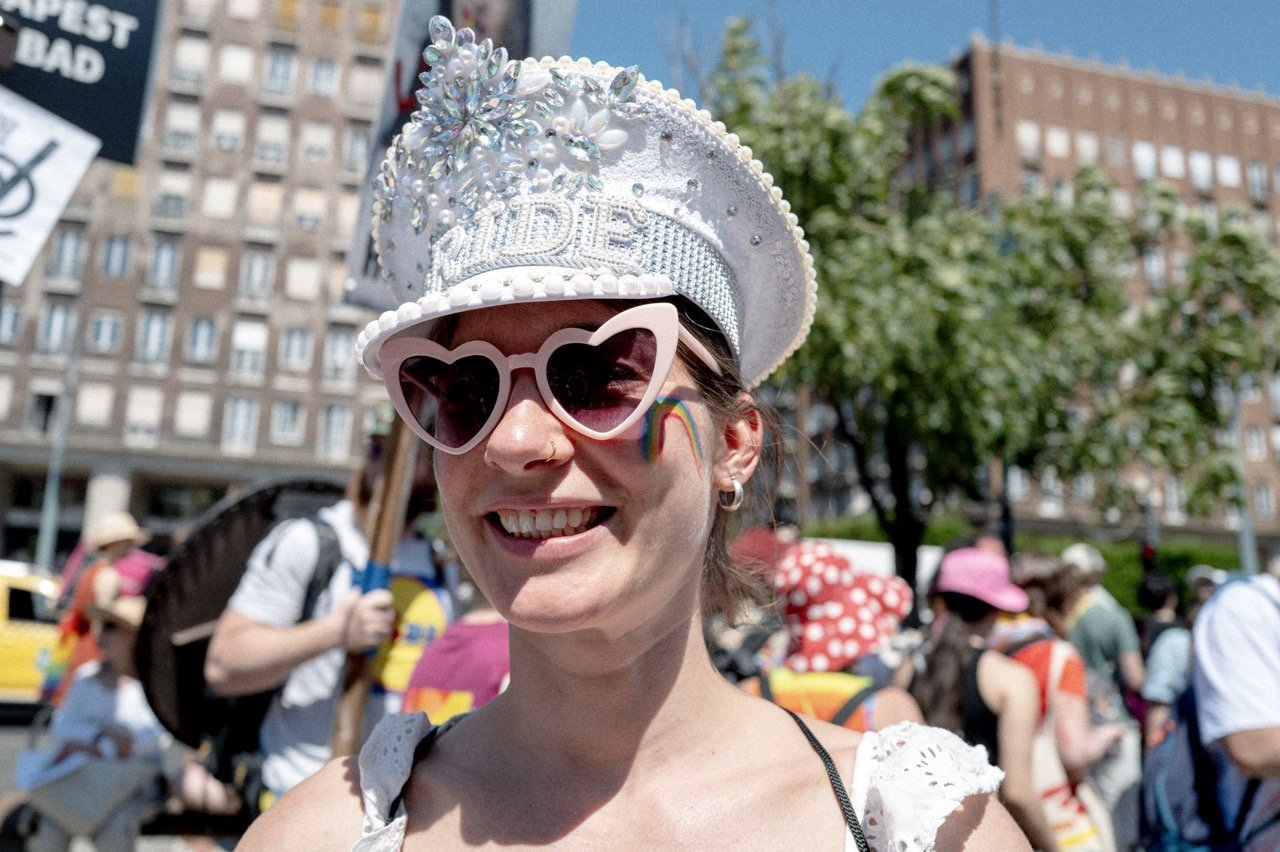
For Further Reading
To go deeper into the personal stories of the people affected by the political climate in Hungary, you can read the companion piece I wrote this spring: THE BIG FRIGHT IN HUNGARY: 5 Queer Monologues on Being Scapegoated
I want you to know
For those who were there, or for those who followed from afar, I would love to hear your thoughts and experiences in the comments below.


